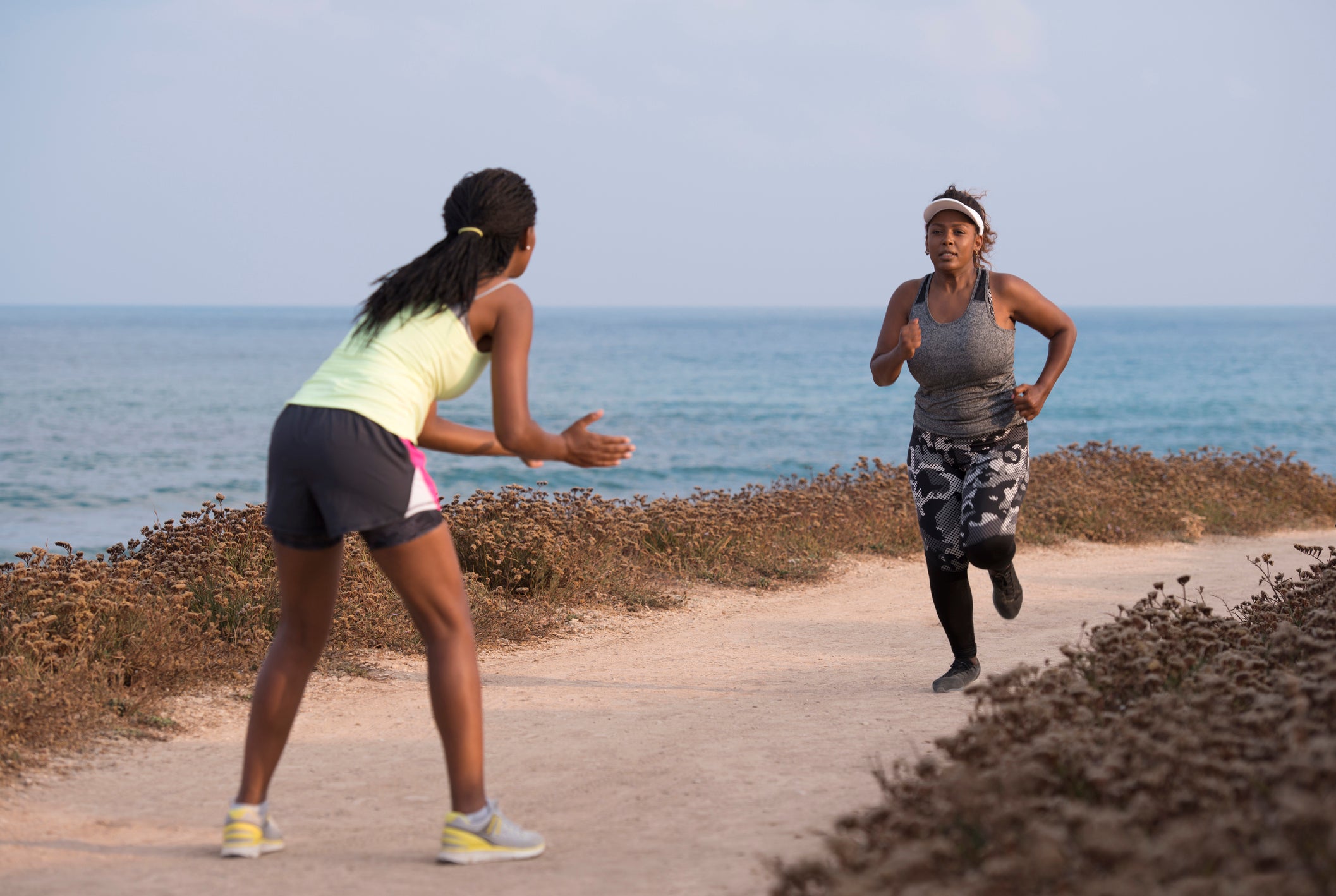Should You Hire A Coach?

Before we jump into whether or not you need a running coach, it’s important to understand that personal coaching can be for everyone. If you’re trying to run UTMB or simply want to run a mile without stopping—there is a coach out there for you.
Whether or not you need someone to coach you to hit those goals (and beyond!) comes down to your desire to step up your training, your personality, and your budget.
How bad do you want it?
Desire is a simple concept. If you don’t truly want to improve as a runner, no coach in the world is going to be able to help you. But keep in mind, your desire doesn’t have to be for any sort of competition. A coach can help you to just keep running in your life. They can help you fit it into your schedule in a way that will create a lifelong love. “You get to start wherever you are and go wherever you want to go,” says Heather Stephens, a coach with Seattle-based Rad Running.
And certainly, if you have big competitive goals, coaches bring that training expertise to the table to help you get there.
RELATED: Check Out Trail Runner’s Coach Concierge
Do you need guidance?
Kristin Metcalf, who coaches alongside Stephens at Rad Running, says that most athletes come to them for personal coaching because they want to be held accountable. If you are a person who needs someone to set a schedule for you and get you out the door, a coach provides that. They will check in with you after the workout and, if you falter, help you create a plan to do better next time.
On the flip side, runners who don’t lack motivation but are instead too headstrong may also find a coach beneficial. You may be prone to overtraining or continue to get injured when you go it on your own. Stephens says she sees that fairly often in the athletes she trains. “You just need someone to say, ‘Hey, permission to take the day off. Let’s do it tomorrow.’”
A personal coach will be able to guide you through the balance of training, racing, rest, and recovery. They can be a sounding board as you go through the whole process.
RELATED: Chasing Your Potential Takes Many Years So Keep Believing
How much are you willing to spend?
Depending on how involved and specialized the training is, coaching tends to range from $100 a month all the way up to $500 or more a month, says Metcalf.
Metcalf and Stephens recommend that runners try to analyze the costs and benefits from every angle before committing to a coach. Think about how much you might pay for a monthly gym membership or fitness classes. What kind of time is the coach committing to you? What else might they be offering (like access to a physical therapist or nutritionist on their staff)? All of those things can help you determine if the cost is worth it to you.
“It’s kind of like when you go to a restaurant and you sit down and you expect to have a certain experience and a certain level of food,” says Stephens. “Is that valuable to you versus going to the pizza place down the street?” In this analogy, the pizza place is like an online training plan, which is a more affordable, cookie-cutter approach. But in that way, many recreational runners might view personal coaching as an indulgence.
Stephens compares coaching to therapy, which isn’t always treated with the importance it deserves. “There’s this thing in your life that you love,” she says “And if running has the power to help you make other areas of your life go smoother, for me, at least, if I do a hard workout and I nail it, I feel like I set the rest of my day and week up really well.” If that’s true for you, the cost may well be worth it.
RELATED: An Expert Training Plan For Your Next 50k
How to interview a prospective coach
Hiring a coach is a partnership more than anything else, says Metcalf.
When you’re ready to make the leap and enter into that partnership, the coach will, hopefully, ask you a lot of questions. (What does your life look like? What’s your work schedule? What does your family life look like? What are your goals? What is your history with running?)
But here are some questions you can ask them:
- What is your coaching philosophy?
- What role, as a coach, are you going to play in this for me? [The answer to these first two questions will really help you determine if you and that coach vibe.]
- What experience do you have?
- How much do you charge?
- Can we work my favorite cross-training or exercise classes into my schedule?
- How do you support your athletes when training gets derailed?
What you really want to find out, says Metcalf, “Does the coach look at your whole person and take into account what your life looks like? That is very important.”